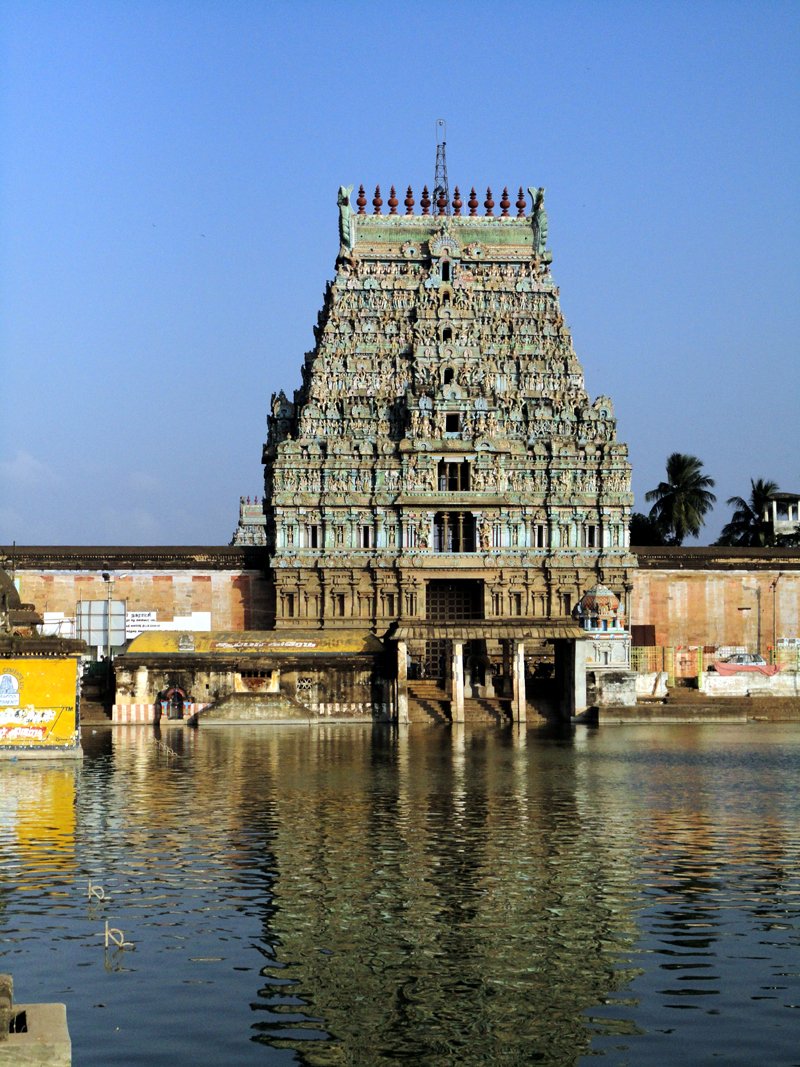The consort of Siva as Tyagaraja Swamy at the temple in Tiruvaroor is the Goddess Neelotpalaamba.
She is called in Tamil as Alliyankodhai from the Tamil word Alli for the flower Lily.
#ShortThread
She is called in Tamil as Alliyankodhai from the Tamil word Alli for the flower Lily.
#ShortThread
https://twitter.com/tweets_tinku/status/1489154539270078464

Muthuswami Dikshitar, one of the Carnatic Trinity, and a Devi Upasaka composed hundreds of songs.
Pic: A stamp issued in honor of Dikshitar in 1976 on his 200th birth anniversary.
Pic: A stamp issued in honor of Dikshitar in 1976 on his 200th birth anniversary.

Well-versed in Sanskrit, Dikshitar composed groups of songs, with the first word beginning with noun declension in each of the 8 cases (vibhaktis) of Sanskrit. 

The most popular of these is the Kamalaamba Navavaranas, 9 songs dedicated to the Goddess Kamalambika of the Tyagaraja Swami temple in Tiruvaroor.
I had written about them here:
indianexpress.com/article/opinio…
I had written about them here:
indianexpress.com/article/opinio…
Slightly less well known are the Neelotpalaamba Navavaranas that Dikshitar dedicated to the Goddess Neelotpalaamba of the same temple. 

Neelotpalaamba - Ambika who is as graceful as the blue lily
The Neelotpalaamba Navavaranas are also known by another name.
What is that?
The Neelotpalaamba Navavaranas are also known by another name.
What is that?

Dikshitar composed all the kritis in ragams whose names end with the phrase "Gaula"
These are
NarayanaGaula
NareereetiGaula (2 kritis in this)
KannadaGaula
KedaraGaula
Gaula
MayamalavaGaula(known to all learners of Carnatic music)
PurvaGaula&
ChayaGaula
These are
NarayanaGaula
NareereetiGaula (2 kritis in this)
KannadaGaula
KedaraGaula
Gaula
MayamalavaGaula(known to all learners of Carnatic music)
PurvaGaula&
ChayaGaula
So, these Neelotpalaamba Navavaranas are also called Gaulaanta Raga Kritis.
Perhaps, we should explore these kritis dedicated to the Goddess of the Blue Lily, in detail this Navaratri.
Thank you for reading.
Perhaps, we should explore these kritis dedicated to the Goddess of the Blue Lily, in detail this Navaratri.
Thank you for reading.
P.S - Here's a wonderful rendition of Sri Neelotpala Nayike by Dr. Balamurali Krishna
• • •
Missing some Tweet in this thread? You can try to
force a refresh










